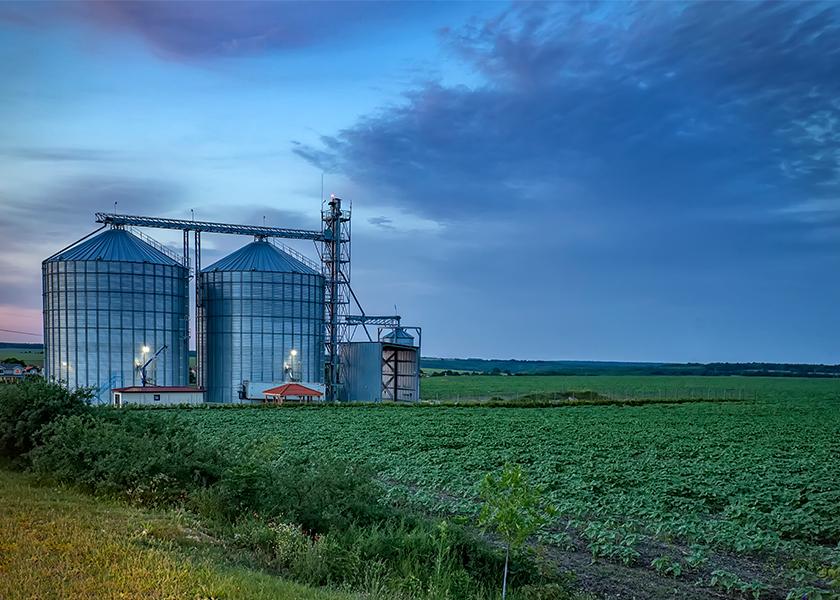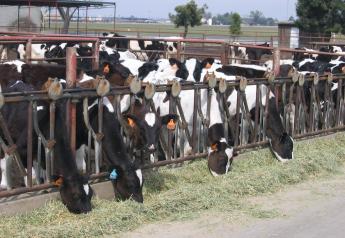Evening Report: Feb. 14, 2022

Click here to view weekly export inspections charts and here to view report details.
Check our advice monitor on ProFarmer.com for updates to our marketing plan.
Russia/Ukraine update... After a weekend when the U.S. and Europe warned that a Russian invasion could happen at any time, Monday’s markets went into a frenzy late after Ukrainian leader Volodymyr Zelenskiy had a Facebook post saying Wednesday is the likely date of the Russian invasion. However, Oleksiy Danilov, Ukraine’s secretary of the National Security and Defense Council, told reporters after a special meeting with lawmakers that the country’s law enforcement bodies see no full-scale Russian attack on Feb. 16-17.
Diplomatic talks will continue after Russian President Vladimir Putin agreed to continue discussions to de-escalate the situation. Meanwhile, German Chancellor Olaf Scholz held talks in Ukraine on Monday. He is scheduled to meet with Putin on Tuesday. Zelenskiy urged U.S. President Joe Biden to keep pushing for deterrence and diplomacy during a Sunday phone call. In addition, Zelenskyy invited Biden to visit his country.
Other actions also offer signs of reduced military invasion for the moment. Trade vessels are still able to use Ukraine’s ports. The Russian foreign minister said some of the Russian training in the area was complete. Ukraine and Belarus defense ministers agreed on an exchange aimed at ensuring a channel of communication as both nations conduct military exercises, according to the Ukraine government.
However, some are preparing for an armed conflict. Airlines, especially European ones, are taking more steps to avoid Ukraine. Hungry and Poland are preparing for an influx of Ukrainian refugees.
Bird flu found on Kentucky broiler farm, backyard flock in Virginia... Highly pathogenic avian influenza (HPAI) has been confirmed on a commercial broiler farm in Fulton County in southwest Kentucky, according to USDA’s Animal and Plant Health Inspection Service. In northern Virginia, a mixed-species backyard flock in Fauquier County also tested positive for avian flu. Officials are waiting on test results from a turkey flock in Webster County, Kentucky.
State officials have quarantined the affected premises. Birds on the properties will be depopulated and kept from entering the food change. Officials will test properties within 10-kilometers for the disease. The Fulton County surveillance zone dips into Obion County in Tennessee due to Fulton County’s location on the state line border.
Kentucky’s poultry industry ranks seventh in the nation for broiler production. Tennessee is a leader for primary breeders, producing more than 98% of that poultry.
Canadian officials work to open western border crossings... After the Ambassador Bridge between Detroit and Windsor, Ontario was re-opened, Canadian officials continued to work to open the blocked border crossings in Alberta and Manitoba, according to the Canadian Broadcasting Company.
On Monday, the Royal Canadian Mounted Police (RCMP) arrested 11 people after searching three trailers and finding weapons near the main U.S. border crossing at Coutts, Alberta. The province’s Premier Jason Kenney said the successful police operation now clears the way for authorities to proceed with further enforcement without fear of provoking violence. He said they had enough heavy equipment and operators to remove commercial vehicles blocking the highway.
At the border crossing in Manitoba, all lanes to the border remained blocked by 75 vehicles. RCMP is negotiating to open one lane in each direction.
AgRural: Brazil soybean harvest hits 24%... Brazil’s soybean harvest increased eight percentage points last week and the pace is running 15 points ahead of last year, according to AgRural. The top soybean-producing state Mato Grosso has over half its soybeans harvested. Excess rains were reported in Rondonia and Minas Gerais. Yield reports continue to be low in Parana due to drought through the growing season. AgRural reports 42% of the safrinha corn crop is planted, up 18 points from the previous week and 31 points ahead of last year.
Bayer warns of possible glyphosate shortage... Bayer cautions their glyphosate production might be hampered for three months due to a “mechanical failure” at one of its suppliers. In a letter released on Friday, ingredient or supplier details were not revealed. Bayer declared force majeure, which could suspend any supplier’s contractual liabilities for issues beyond its control. The company reported it is are conducting mitigation efforts including sourcing additional ingredients.
India cuts crude palm oil import tax... India cut its tax from 7.5% to 5% for crude palm oil imports, according to industry officials. The import tax cut took effect Sunday. The gap between refined and crude palm oil would widen to 8.25%. However, refiners say the gap would need to be 11% to encourage local refining. The Indian government also said the separate, basic customs tax reduction on edible oils that was scheduled to expire on March 31 will be extended until Sept. 30.
WTO: Demand shock should ease in months... Demand spikes that are causing global trade bottlenecks should ease in the coming months, according to WTO Chief Economist Robert Koopman. Without any new geopolitical or health shock, he predicts inflationary pressures will reduce in the next three to four months. He already sees improving signs, including fewer back-ups of ships at ports and more throughput at U.S. ports.
However, some companies say it will take until next year before things get back to normal. In October, the WTO predicted demand for goods would slow in early 2022. However, that was before the Omicron variant developed. The WTO will have a March meeting to discuss global supply chain issues.
Study says U.S. corn-based ethanol worse for the climate than gasoline... A study published in the Proceedings of the National Academy of Sciences and commissioned by USDA says ethanol is likely at least 24% more carbon-intensive than gasoline. The research, which was funded in part by the National Wildlife Federation and U.S. Department of Energy, found increased emissions resulting from land-use changes to grow corn, along with processing and combustion. Tilling fields release carbon stored in soil, while other farming activities, like applying nitrogen fertilizers, also produce emissions.
Dr. Tyler Lark, assistant scientist at University of Wisconsin-Madison Center for Sustainability and the Global Environment and lead author of the study, said a previous 2019 USDA study underestimated the emissions impact of land conversion.






